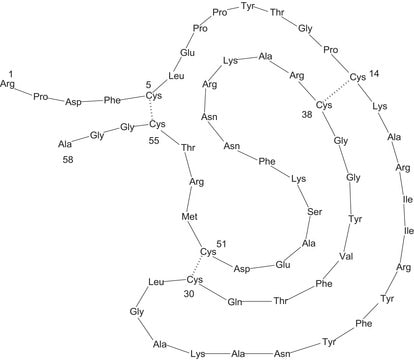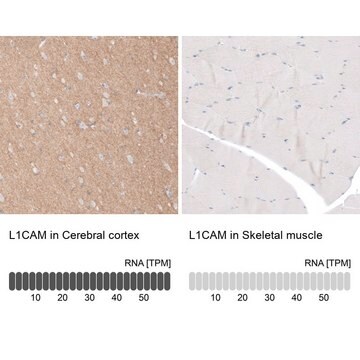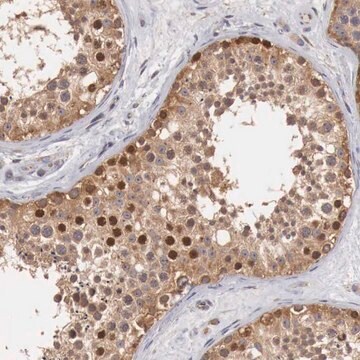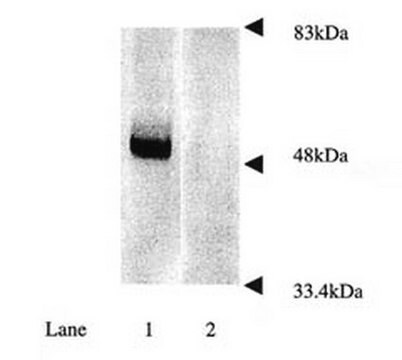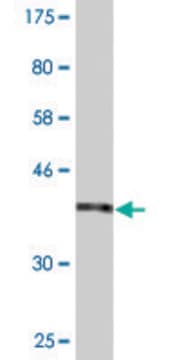L4543
Anti-L1CAM antibody, Mouse monoclonal
clone UJ127.11, purified from hybridoma cell culture
Synonym(s):
L1CAM Antibody - Anti-L1CAM antibody, Mouse monoclonal, L1Cam Antibody, Anti-CAML1, Anti-L1 Cell Adhesion Molecule, Anti-MIC5, Anti-Neural Cell Adhesion Molecule L1
Select a Size
Select a Size
About This Item
Recommended Products
biological source
mouse
Quality Level
conjugate
unconjugated
antibody form
purified immunoglobulin
antibody product type
primary antibodies
clone
UJ127.11, monoclonal
form
buffered aqueous solution
mol wt
antigen 220-240 kDa
species reactivity
human
packaging
antibody small pack of 25 μL
General description
Immunogen
Application
- immunohistochemistry
- immunoprecipitation
- immunoblotting
- immunocytochemistry
- flow cytometry
Immunohistochemistry (1 paper)
Western Blotting (1 paper)
Biochem/physiol Actions
Physical form
Disclaimer
Not finding the right product?
Try our Product Selector Tool.
Storage Class
10 - Combustible liquids
wgk_germany
WGK 3
flash_point_f
Not applicable
flash_point_c
Not applicable
Choose from one of the most recent versions:
Certificates of Analysis (COA)
Don't see the Right Version?
If you require a particular version, you can look up a specific certificate by the Lot or Batch number.
Already Own This Product?
Find documentation for the products that you have recently purchased in the Document Library.
Customers Also Viewed
Our team of scientists has experience in all areas of research including Life Science, Material Science, Chemical Synthesis, Chromatography, Analytical and many others.
Contact Technical Service

